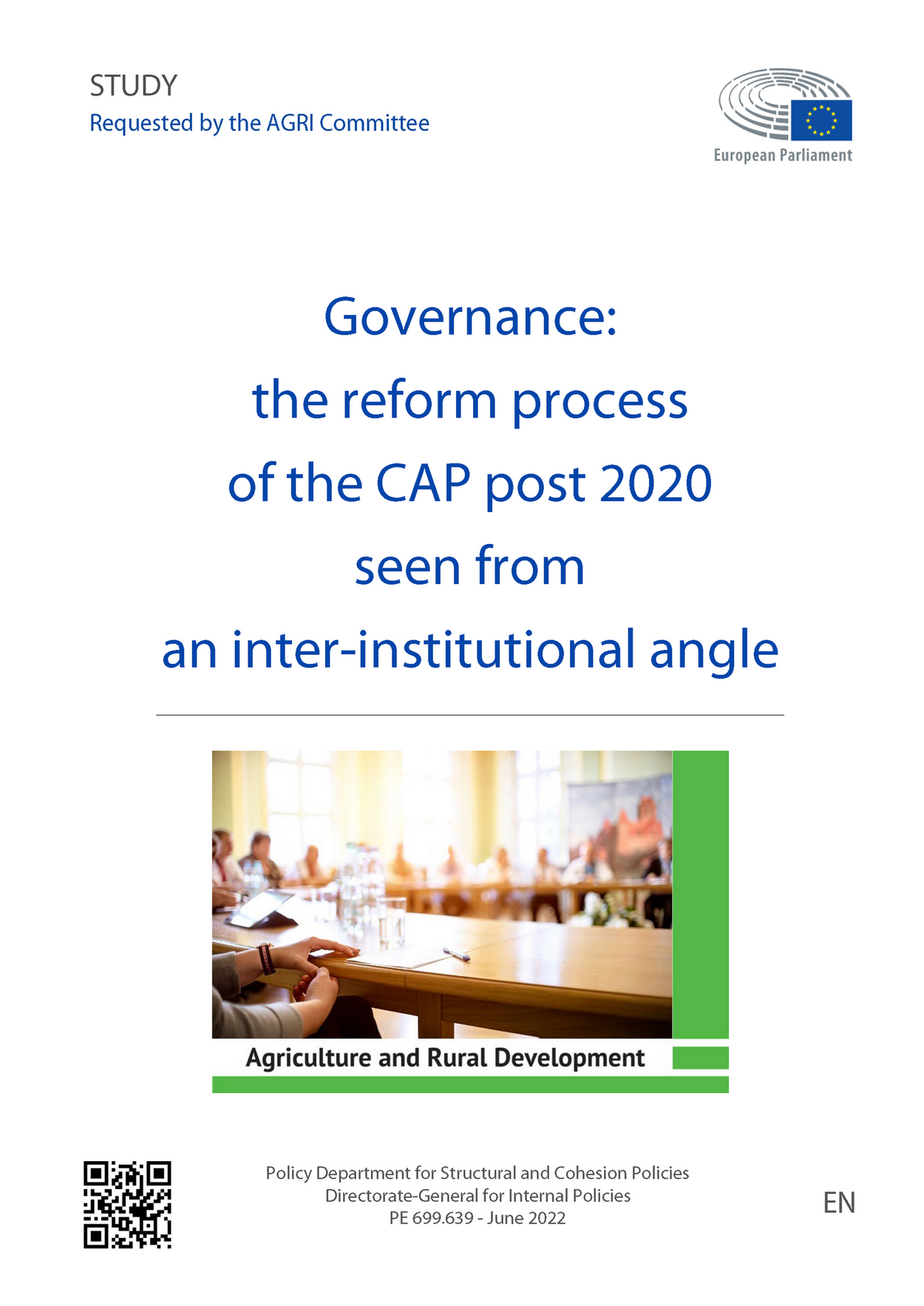The study was prepared by Metis GmbH, Vienna, and the Thünen Institute for Rural Areas. Regina Grajewski, Dr Christine Krämer and Dr Norbert Röder from the Thünen Institute were involved. The authors conclude that the reform process was shaped by the following aspects:
- The European Parliament (EP) acted as the guardian of the Community's financial interests. At the same time, the EP was positively disposed towards political innovations and in some cases - e.g. with regard to the introduction of "social conditionality" - also acted as a political initiator.
- This contrasted with an attitude of the Council, which was primarily characterised by “fiscal frugality" and a tendency to maximise subsidiarity.
- The Commission took on a very political role, acting de facto as a third negotiating party rather than an honest broker between the EP and the Council.
- There was a certain fragmentation of interests in all the institutions. On the EP side, this was particularly evident in the different priorities set by the Agriculture and Environment Committees.
Despite the difficult starting situation and the more difficult negotiating conditions due to Corona, the EP was able to achieve negotiating successes. These include the introduction of "social conditionality" or the setting of a minimum budget for the eco-regulations.
Based on the analysis of the reform process, the authors derive a series of recommendations on how the EP can better assert its positions in future negotiation processes. These include:
- Ensure greater internal consistency of the negotiating mandate in the in-house coordination process,
- limiting itself to a few core concerns, and
- strengthen its own analytical capacity to develop and evaluate policy proposals from third parties (incl. Council and Commission).
Read the complete study:
Martinos H, Matthews A, Skouras D, Pazos-Vidal S, Röder N, Grajewski R, Krämer C (2022) Governance: The reform process of the CAP post 2020 seen from an inter-institutional angle: study requested by the AGRI Committee [online]. Brussels: European Parliament Policy Department for Structural and Cohesion Policies, 116 p, zu finden in <https://www.europarl.europa.eu/thinktank/en/document/IPOL_STU(2022)699639>, DOI:10.2861/865460

![[Translate to English:] [Translate to English:]](/media/_processed_/2/0/csm_LV_Bei_Hornburg_Quelle_Johanna_Fick_neu_da89674833.jpg)
![[Translate to English:] [Translate to English:]](/media/_processed_/2/0/csm_LV_Bei_Hornburg_Quelle_Johanna_Fick_neu_3aae309567.jpg)






